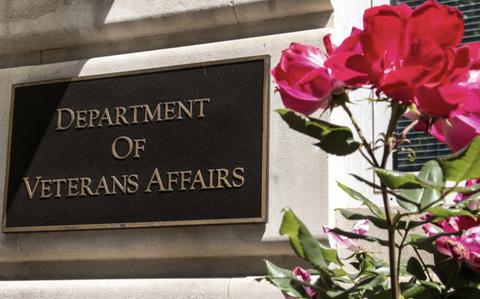I am an Army veteran who served in Vietnam in 1967 and 1968. I have been with the Veterans Health Administration, the VA’s health care system, since 2015 and served as an administrator for 30 years. I recently had two surgeries at the VA Medical Center in Asheville, North Carolina. Much of my treatment was for two service-connected disabilities, heart disease and prostate cancer, caused by exposure to Agent Orange in Vietnam. I have always received prompt and excellent medical care, but don’t take my word for it.
Over the years, peer-reviewed studies have consistently shown that VHA care is equal to or better than that in the private sector. In addition to providing unparalleled medical care, the VHA is the primary educational institution for medical professionals, with 70% of physicians trained at VHA facilities. The VHA is also a home for research and serves as a backup for civilian and Department of Defense facilities during national emergencies.
Surveys confirm that the vast majority of veterans want to strengthen and even expand the VHA. I am one of them. That’s why I’ve been so wary of unfounded attacks on the VHA over the last decade, starting with the passage of the CHOICE Act in 2014, followed by the MISSION Act in 2018. These acts created a parallel private health care network known as the Veterans Community Care Program (VCCP), which is supposed to provide faster, higher-quality health care to veterans, especially those who live in rural areas like me.
That is not happening.
Research has found that private sector health care, unlike the VA, is profit-driven, not mission-driven, and consistently underserves veterans. Veterans like me experience long delays and receive lower-quality care in the private sector. Even more alarming, private health care providers too often recommend unnecessary procedures that could cause us undue harm. That’s the conclusion of a 2023 study published in the Journal of the American Medical Association. Veterans with low-risk prostate cancer like me were far more likely to receive surgery or radiation treatments rather than watchful waiting, the standard of care.
What was once marketed to veterans as simply a supplement to VHA care now threatens its future: VCCP costs have risen dramatically from $14.8 billion in 2018 to more than $28.5 billion last year. More than 40 percent of VHA patients now receive at least some care in the private sector.
VA Secretary Denis McDonough has publicly stated that the funds being diverted to private care are not sustainable. TriWest Healthcare Alliance and Optum, the prime contractors driving this outsourcing, are seeking an increase of $103 billion over the remaining five-year contract, more than the original projection of $86 billion. (Optum has already been awarded an additional $4 billion in contracts in the seven months just to manage one of the five VCCP regions.) The VA has not requested additional budgets to support these expenditures, so the funds can only come from the VHA’s existing budget. In an apparent response to these budgetary strains, the VHA recently announced 10,000 job cuts.
This may sound like an unsolvable crisis, but solutions exist and have been explained to MacDonough and many members of Congress by experts.
Last year, the VHA commissioned a Red Team Executive Panel to investigate the VCCP. The team was made up of six health care leaders, including Kenneth W. Kaiser, who served as VA Under Secretary of Health under the Clinton Administration, as well as prominent health system executives, including former Department of Defense military health officials and private sector veterans. The team’s report was titled “The Need for Urgent Action on VHA Community Care Spending and Access Strategy.” It was filled with common-sense recommendations, including reviewing unrealistic drive and wait times for referrals to private providers, returning veterans to VHA facilities after initial consultations and emergency department visits for private care, and conducting a campaign to advise veterans on the quality of VHA and VCCP care.
We, veterans, cannot afford to lose the VA health care that generations have fought for. Vietnam veterans like me still suffer from the risk of combat injuries and exposure to toxic substances like Agent Orange. Post-9/11 veterans carry unique scars, including traumatic brain injuries, post-traumatic stress disorder, sexual trauma in the military, and exposure to toxic substances from incinerators. This is one of the reasons Congress passed the much-needed PACT Act.
If the VA is to keep its sacred promise to veterans, McDonough needs to immediately implement the Red Team’s recommendations. If he continues to dither, Congress will need to step in and save the VA so it can serve current and future generations of veterans.
Bruce Carruthers served in the United States Army during the Vietnam War, is a former Department of Veterans Affairs official, and a member of the Veterans Health Policy Institute.
